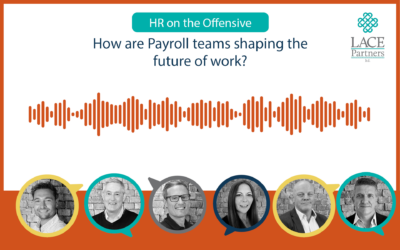Tomorrow the UK public will go to polling stations to decide who the next government should be. The various parties have been canvassing for votes for a month now. At LACE HQ, we’ve taken a perspective on the impact of a new government in our recently produced Successful CPO: Election special whitepaper. As various media outlets have tracked the progress of public sentiment, such as here and here, many expect that a Labour government will take charge starting this Friday.
In anticipation of this, we ran an HR on the Offensive Live stream last week that looked at some of the key points of the Labour Party Manifesto, released after we launched our Election special, to see where there were alignments and also differences that had emerged since Prime Minister Rishi Sunak called the election on 22nd May.
We asked Krystan Kirkpatrick-Best to look at some of the alignments and differences for this week’s blog, which goes into more detail ahead of the big day tomorrow.
Could legislation impact workforce planning?
In the Manifesto itself, Labour specifically calls out their plans to end what they call ‘fire and rehire’—where employees are dismissed and re-engaged on new contracts—and introducing legislation through an employment rights bill that they want to implement within their first 100 days in charge. The current government has updated a draft of the Code of Practice on fire and rehire, but Labour’s approach is that this does not go far enough and is proposing an absolute ban on the use of the practice.
However, Labour has been very careful with its wording, stating in the Manifesto that it will “consult fully with businesses, workers, and civil society on how to put our plans into practice before legislation is passed”. Clearly, from a worker’s rights perspective, this approach should be a welcome one. Still, businesses will seek more clarity on several different regulations, including statutory sick pay (SSP), which the Labour Party are looking at, introducing basic rights from day one on parental leave, sick pay and protection from unfair dismissal.
The current requirement is that employees must be absent from work for more than three days before they are required to receive SSP, but this legislation would bring it forward and also include extending SSP entitlement to all workers, including those who are self-employed and currently do not qualify for it.
The impact on businesses as they look to drive greater emphasis on their strategic workforce planning approaches may have an effect here. As we have spoken about in a blog on workforce planning we’ve released previously, we are seeing and hearing more organisations focus on using data to build their workforce requirements to plan out their future talent and skills needs; when organisations are working with large volumes of employees, especially in industries where demand might be cyclical or seasonal, what seems like a relatively small change can have a profound impact on how organisations address their talent requirements. Suppose an organisation that relies on self-employed workers is more project-based and has to change its conditions to offer the same as employed workers. Could that see a shift in their model and approach? Does it also represent a greater risk when considering large volumes of hiring requirements?
The Labour Party has also been very public about its desire to ban “exploitative zero-hour contracts,” and certainly, the intention to eradicate the abuse of this practice is one all businesses would support. But does a blanket ban serve the needs of all parties?
Some of the proposals the Labour Party has suggested have included banning zero-hour contracts with less than a minimum number of guaranteed hours. Again, where organisations are trying to adapt to rapidly changing conditions, could this see a more risk-averse approach from some employers in certain sectors?
The impact of wellbeing on employee experience
We’ve talked a lot on our blogs and podcasts about the importance of delivering effective wellbeing strategies for employees as part of providing an amazing employee experience, and the Labour Party Manifesto highlights mental health against the backdrop of the increasing number of people who have been off work in the UK for mental health reasons. The Manifesto states that the Labour party will “ensure we give mental health the same attention and focus as physical health” which will be welcome for both employees and employers.
At LACE, we’ve discussed the importance of crafting holistic employee experiences, with wellbeing spanning the physical, human and digital experiences. Organisations that are able to incorporate a robust wellbeing strategy across these areas are already well-placed to support their employees and reduce the possibility or employees losing time at work due to health-related issues.
Skills and apprenticeships
Over the summer and into the Autumn, we’ll be releasing our latest campaign that will focus on developing an approach to become a supercharged skills-based organisation, and skills have formed an essential part of the political parties’ narrative when it comes to driving productivity and growth in the economy. Included are apprenticeships, and in our Election special whitepaper, we talk about the continued development of effective apprenticeship programmes, with financial incentives available to employers who recruit and train apprentices to help address challenges in high-demand sectors like technology, engineering, and healthcare. IT is also important to improving the employability of apprenticeship candidates. We see strengths in access to grants for industry-specific training (particularly in a UK skills shortage) or ongoing education or certification in specific fields.
Labour’s Manifesto talks of putting “employers at the heart of our skills system / Labour will also reform the Conservatives’ broken Apprenticeships Levy” and has stated that they will create a “flexible Growth and Skills Levy, with Skills England consulting on eligible courses to ensure qualifications offer value for money”. They have also said they will guarantee training, apprenticeship, or help find work for all 18 to 21-year-olds.
From an HR perspective and a talent and skills planning approach, this will no doubt be welcome. Still, the logistics of putting this into practice when you are looking at hiring thousands of new workers into the workforce cannot be underestimated. Getting robust acquisition, onboarding and retention approaches right is key, and so is quantifying success. In this blog we talk about the different stages of the employee life cycle that we identify with our clients (Attract and recruit me, Welcome me, Enable me, Help me grow and perform and Wish me well) and whilst initiatives will be welcome from businesses to help drive their talent pools, we’d recommend that organisations map out the entire employee life cycle to ensure those new joiners have a long and productive career within your organisation.
If you’re interested in talking to us about your approach to strategic workforce planning, crafting the perfect holistic employee experience or your employee life cycle, you can reach out to us by filling in the form below.






